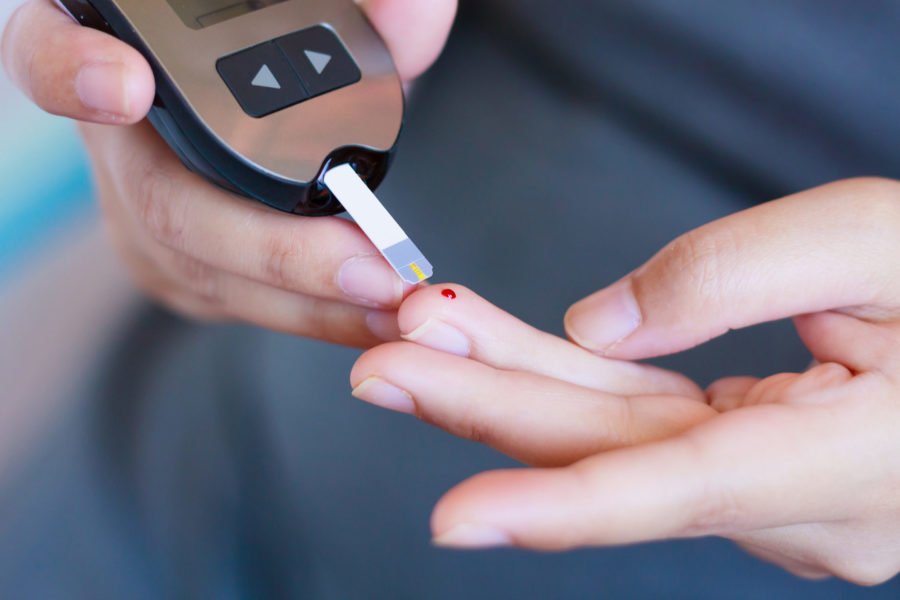Dietitian Blog, MNT Guidelines | May 16 2019
The importance of blood sugar control in cardiac surgery patients

Blood sugar control is crucial in the cardiac surgery population, in patients with and without diabetes. Despite this, there are no guidelines surrounding target blood sugar goals in the perioperative cardiac surgery patient.
The definition of hyperglycemia varies throughout the research, but one thing remains clear: hyperglycemia leads to poorer surgical outcomes in cardiac surgery patients, in the immediate postoperative period and even years after surgery.1-4 How can we improve this important clinical endpoint?
Pathophysiology of hyperglycemia
The pathophysiological changes that occur in the hyperglycemic state complicate patient recovery. Elevated blood glucose levels impair neutrophil function, cause an overproduction of reactive oxygen species, and cause overproduction of free fatty acids and inflammatory mediators.5 These pathophysiological changes contribute to direct cellular damage as well as vascular and immune dysfunction.6
In addition, the stress of surgery alters production of hepatic glucose and utilization of glucose in peripheral tissues.5 All of these processes (and more) lead to a relative state of insulin resistance and an altered state of insulin action.7 Even a single incident of hyperglycemia can lead to increased mortality, incidence of wound infections, and overall length of stay.1-4
Glucose management: the Goldilocks way
Many are familiar with the classic children’s tale ‘Goldilocks and the Three Bears.’ This fable has quite a few similarities to the way blood sugar control in this population can be managed. In the children’s tale, Goldilocks tastes porridge from three different bowls; one was too hot, one was too cold, and one was just right. In cardiovascular surgery, we approach perioperative blood sugar control in much the same way.
Blood sugar can be defined as too high, too low, or just right. In general, blood glucose values above 140 mg/dl are considered hyperglycemia, while blood glucose levels below 70 mg/dl are considered hypoglycemia.8 Studies show complication rates rise when patients experience hyperglycemia or hypoglycemia at any point during the perioperative period.1-4
What’s the perioperative period definition? Overall, there’s not a specific time period, but generally 24 hours before surgery to nine to 21 days after surgery is considered the “perioperative period.”7
Controlling blood sugar levels
It is well-known that insulin is the medication of choice for blood sugar control. In addition, many patients are required to follow a carbohydrate-restricted diet post-operatively. This can take may forms, including “no added sugar,” “consistent carbohydrate,” or even “sugar-free” diet orders. Check with your facility’s protocol to see how you can best support patient recovery.
References:
Khan NA, Ghali WA, Cagliero E. UpToDate: Perioperative management of blood glucose in adults with diabetes mellitus. Nathan DM, Jones SB, Mulder JE, eds. February 2018.
Lazar HL, Mcdonnell M, Chipkin SR, et al. The Society of Thoracic Surgeons Practice Guideline Series: Blood Glucose Management During Adult Cardiac Surgery. The Annals of Thoracic Surgery. 2009;87(2):663-669. doi:10.1016/j.athoracsur.2008.11.011.
Duggan EW, Carlson K, Umpierrez GE. Perioperative Hyperglycemia Management. Anesthesiology. 2017;126(3):547-560. doi:10.1097/aln.0000000000001515.
Reddy P. Blood glucose management in the patient undergoing cardiac surgery: A review. World Journal of Cardiology. 2014;6(11):1209. doi:10.4330/wjc.v6.i11.1209.
Farrokhi F, Smiley D, Umpierrez GE. Glycemic control in non-diabetic critically ill patients. Best Practice & Research Clinical Endocrinology & Metabolism. 2011;25(5):813-824. doi:10.1016/j.beem.2011.05.004.
Esposito K, Nappo F, Marfella R, et al. Inflammatory Cytokine Concentrations Are Acutely Increased by Hyperglycemia in Humans. Circulation. 2002;106(16):2067-2072. doi:10.1161/01.cir.0000034509.14906.ae.
Thorell A, Efendic S, Gutniak M, Häggmark T, Ljungqvist O. Insulin resistance after abdominal surgery. British Journal of Surgery. 1994;81(1):59-63. doi:10.1002/bjs.1800810120.
Moghissi ES, Korytkowski MT, Dinardo M, et al. American Association of Clinical Endocrinologists and American Diabetes Association Consensus Statement on Inpatient Glycemic Control. Diabetes Care. 2009;32(6):1119-1131. doi:10.2337/dc09-9029.
Who we are
Dietitians On Demand is the nationwide leader in providing dietitians with jobs they love. If flexibility, competitive pay, a full benefits package, free CPEUs each month and a team dedicated to dietitians sound good to you, apply to our positions today.




